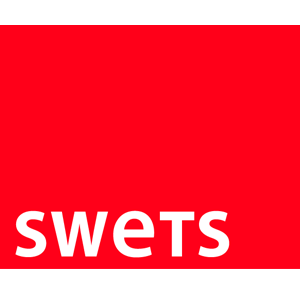Swets Launches Open Access Payment Management Service
 Global information services company Swets this month launched a new service to help academic libraries pay and manage article processing charges (APC) on an institutional scale.
Global information services company Swets this month launched a new service to help academic libraries pay and manage article processing charges (APC) on an institutional scale.
The move comes in response to a sharp increase in fee-based open access publishing in the United Kingdom. “We’ve seen a real significant change in the UK academic market over the last 12 months, which has a big potential impact on Swets—in the UK primarily, but also may well influence other parts of the world,” Robert Jacobs, commercial director for Swets UK, told LJ.
The UK’s increase was driven by a change in funder policy: in July 2012, Research Councils UK (RCUK), a coalition of seven agencies responsible for the public funding of scientific and academic research in the UK, adopted an open access policy somewhat similar to the Public Access Policy that the U.S. National Institutes of Health implemented in 2008. Publishers of peer reviewed papers that result from research funded by RCUK agencies must either allow authors to make their work available in a subject or institutional repository after an embargo period (green open access), or the publishers must offer a paid/gold option to authors that will make papers open access immediately upon publication. In November 2012, RCUK announced the allocation of £100 million in block grants to help UK universities pay for a portion of these gold open access fees. The policy took effect in April.
The Guardian described it as “the most radical shakeup of academic publishing since the invention of the Internet,” but the new policy and its subsequent revisions have not been immune to criticism. Many researchers have argued that the inclusion of the gold open access model in the requirements was a capitulation to publishers and question how long this funding model can continue.
The new system and influx of money has also created a more immediate challenge for academic libraries.
“What has happened is that the university libraries, in most cases, have been tasked to manage the APC payments on behalf of the institution and their authors,” Jacobs explained. These libraries are now anticipating a significant increase in administrative duties related to APC management, with payment models, cost, and many other factors varying by publisher.
The U.S., too, is likely to see a major increase in OA publications soon, again driven by funder mandates: February’s Office of Science and Technology Policy memo required major research funding agencies to develop and implement an OA policy.
The new APC system will leverage Swets’ existing relationships with thousands of publishers and libraries, offering fund management options to track spending, a single point of contact to handle publisher relationships, a concise way to handle micro-transactions, a means to reduce the volume of invoices, and detailed, real-time reporting on the status of all transactions, the company explained in an announcement.
“Each library is doing their own thing at the moment, and there’s a need to drive scale efficiencies and also some best practices…. There’s many parallels to the subscription market where Swets is already a clear market leader in terms of managing subscription payments,” Jacobs said.
Although the service was designed to address an emerging challenge for the UK’s academic libraries, it is available globally. The model certainly appeals to publishers, and many have been working to develop their own processes and systems to support it with the expectation that other countries could follow the UK’s lead, Jacobs said.
In the U.S., gold open access fees are generally paid by out of grant funding. However, the percentage subsidized by libraries may be growing: 39 research institutions are experimenting with OA funds, according to a SPARC report, and these are usually run out of the library, either alone or in partnership with another university stakeholder such as the provost’s office or office of scholarly communication.
RELATED
ALREADY A SUBSCRIBER? LOG IN
We are currently offering this content for free. Sign up now to activate your personal profile, where you can save articles for future viewing









Add Comment :-
Comment Policy:
Comment should not be empty !!!